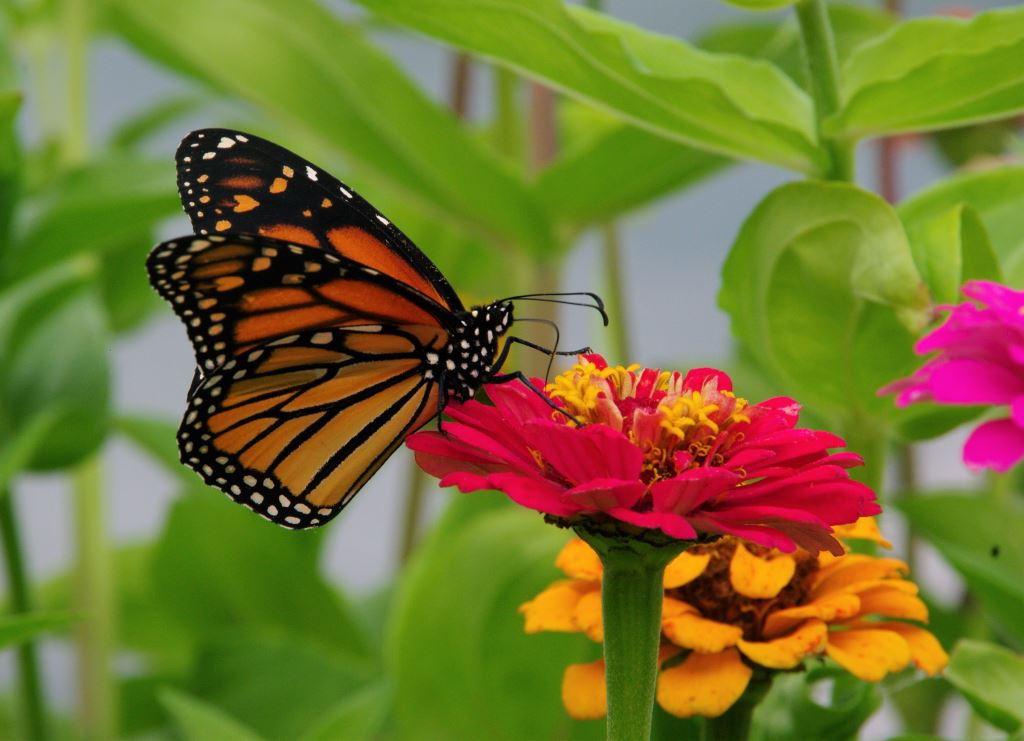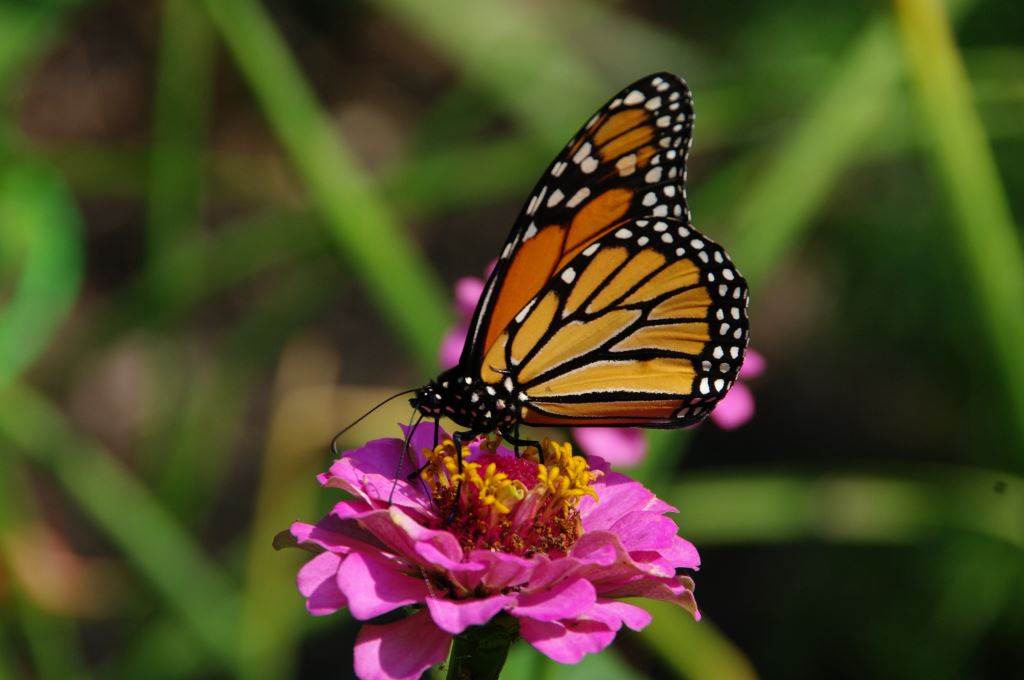As the breeding season for prairie birds winds down, attention is shifting to another winged traveler making its mark in Saskatchewan, the monarch butterfly.
The well-known species undertakes a migration of nearly 6,000 miles each year, a journey completed over four generations. Saskatchewan sits at the northern edge of their range, hosting several generations each summer from June until frost arrives in September.
Most monarchs live only a few weeks, reproducing and feeding on prairie milkweed. The fall generation is different. These butterflies can survive up to nine months and are responsible for the entire southward migration, ensuring the survival of the population into the following year.
“To complete such a vast migration requires quite a bit of energy for such a small animal,” said Emily Putz, Habitat Stewardship Coordinator for Nature Saskatchewan’s Stewards of Saskatchewan program. “This is where the public can come in to help!”
Monarch numbers have dropped by as much as 90 per cent and the species is federally listed as endangered. Putz said loss of habitat is a major threat, including both milkweed for breeding and other flowering plants for nectar.

“There is a lot of emphasis on Milkweed habitat when talking about the Monarch,” she said. “And other nectaring habitat is sometimes overlooked. The adults rely on a lot of our wildflower species to gain the energy they need in their life cycle.”
For the fall generation, Putz recommends planting late-blooming gardens with native species such as goldenrods, smooth aster, many-flowered aster, blazing stars and black-eyed Susan.
“You get to enjoy blooms right up until the frost, and our wild native species get the energy they need,” she said. “It’s a win-win!”
Nature Saskatchewan also urges people to plant milkweed and early-blooming species for summer generations, and to report sightings of monarchs through the season.
Captive rearing, a practice popular among hobbyists, should be avoided, Putz added, since it can harm wild populations. Instead, residents are encouraged to create habitat and record observations of monarchs from egg to adult.
Sightings can be reported to Nature Saskatchewan’s toll-free HOOT-line at 1-800-667-4668 or by email at outreach@naturesask.ca. The group also works with rural landholders to monitor and conserve monarchs and milkweed pastures.
